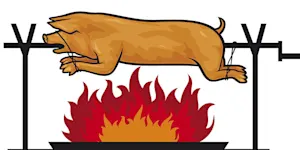What Makes This Word Tick
The word "caitiff" is an old-timey gem that you don't hear every day, which makes it all the more intriguing. Used primarily as a noun or an adjective, it's often employed to describe someone or something as cowardly or despicable. Picture a dastardly villain in an old adventure novel, and you've got the right idea.
If Caitiff Were a Person…
Caitiff would probably be that shady fellow who cuts in line at the grocery store or the neighbor who never returns your lawn mower. They're not necessarily evil masterminds, but more like the sneaky varmint of the community — visible yet dodging accountability.
How This Word Has Changed Over Time
Originally derived from the Latin "captivus," meaning "captive," "caitiff" evolved over centuries through Old French, where it acquired a negative connotation of being wretched or base. By the time it waltzed into Middle English, it had settled into its modern sense of cowardice and despicable behavior.
Old Sayings and Proverbs That Use Caitiff
While you won't find "caitiff" in many proverbs today, back in the day, you might have heard something along the lines of, "A caitiff's heart beateth loudest when silent it should remain."
Surprising Facts About Caitiff
It's not every day you stumble upon a word that's equally at home in a Shakespearean play as it is in a medieval manuscript. "Caitiff" can be spotted in some of the Bard's lesser-known works, often reserved for characters up to no good.
Out and About With This Word
Today, "caitiff" is a bit of a wallflower in the English lexicon but pops up occasionally in historical novels, fantasy sagas, or any setting that seeks to evoke an air of antiquity or moral judgment.
Pop Culture Moments Where Caitiff Was Used
Though not a modern pop culture staple, "caitiff" has made its rounds in classic literature adaptations or in critical discussions about characters with dubious morals. Imagine a film noir narrator sneering at a bumbling villain — "What a caitiff!"
The Word in Literature
Classic literature, especially from the medieval and renaissance periods, has a soft spot for "caitiff." It's a word that befits characters lacking in nobility, either of heart or courage, often employed in dramas and epic tales to evoke disdain.
Moments in History with Caitiff
During the medieval era, when chivalry and valor were all the rage, the term "caitiff" would have been bandied about to discredit those who shirked honor and bravery on the battlefield or in courtly life.
This Word Around the World
Translated, "caitiff" may not always capture its full historical resentment, but in many cultures, a similar concept exists to describe someone cowardly or ignoble. The French "lâche" captures a similar disdain, while in Spanish, "cobarde" hits the mark.
Where Does It Come From?
"Caitiff" traces its roots to the Latin "captivus" — initially referring to captives, it evolved to imply those unfortunate in circumstance, eventually morphing to denote moral cowardice in Middle English.
How People Misuse This Word
It's easy to confuse "caitiff" with simply "cowardly" without the added moral judgment it historically carried. Modern users might mistakenly use it for any ordinary act of cowardice.
Words It’s Often Confused With
Craven: Both describe cowardice, but "craven" emphasizes lack of courage.
Rascal: Slightly misleading, as a rascal is more mischievous than cowardly.
Knave: More about trickery than cowardice.
Additional Synonyms and Antonyms
Synonyms: Poltroon, dastard, recreant.
Antonyms: Hero, courageous, valiant.
Want to Try It Out in a Sentence?
"Though he styled himself a leader of men, his actions revealed him to be a mere caitiff in the court of public opinion."
















